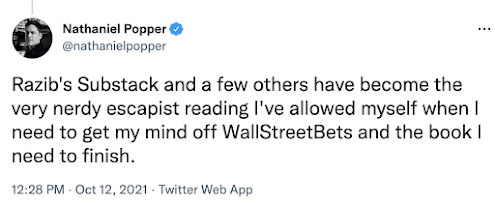Razib Khan Alleges "Gale-Force Bigotry" Against White and Vaccinated Individuals Amidst "Awokening"

Prominent writer and population geneticist Razib Khan recently sparked discussion on social media with a tweet asserting "gale-force bigotry against white ppl during the awokening vaccinated people." The statement, posted by Khan, links perceived societal shifts with specific demographic groups, drawing a controversial connection.
Khan, known for his work in population genetics and consumer genomics, has a history of contributing to various publications and engaging in public discourse, often from a right-wing perspective. He has previously faced scrutiny regarding his views, including a brief, ultimately terminated, contract with The New York Times in 2015 due to past writings on race.
The term "awokening" typically refers to a period, particularly since the 2010s, characterized by a heightened focus on social justice, identity politics, and systemic discrimination. This concept is frequently used in social commentary, often by critics who view these developments as excessive or divisive. Discussions surrounding "bigotry against white people" exist within broader debates on race and privilege, with varying interpretations regarding its nature and prevalence in contemporary society.
Khan's tweet notably includes "vaccinated people" alongside "white ppl" as targets of this alleged bigotry. This specific juxtaposition is unusual and does not correspond with widely recognized or established discourse in mainstream social or political commentary. The tweet does not elaborate on the nature of this perceived bigotry or the connection between vaccination status and racial identity in this context.
The statement by Razib Khan underscores the ongoing and often contentious debates surrounding identity, social change, and perceived discrimination in modern society. His remarks, particularly the inclusion of "vaccinated people" in this specific claim of bigotry, represent a unique and unsubstantiated assertion within these broader cultural conversations.